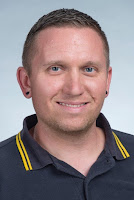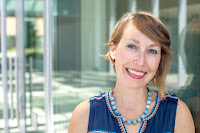Finding My Passion for Science Education

When I got my PhD in Cellular and Molecular Biology over 10 years ago (yikes!), I honestly didn’t really appreciate what I was getting myself into. I started studying hematology as a graduate student in Dr. Mitch Weiss’s laboratory at the University of Pennsylvania; the idea that trillions of mature blood cells were generated from a self-renewing adult stem cell absolutely fascinated me. And, to think that this had to occur over an organisms’ life span intrigued me even more. My love of research didn’t start in graduate school, though. While my love of science was always present, it really started when I was an undergraduate student at Lehigh University in Bethlehem, Pennsylvania, a liberal arts university with a strong focus on engineering and the sciences. I wasn’t really sure what I wanted to do with myself after college, but I had a unique experience working and doing research in the laboratory of Dr. Lynne Cassimeris when I was an undergraduate...






